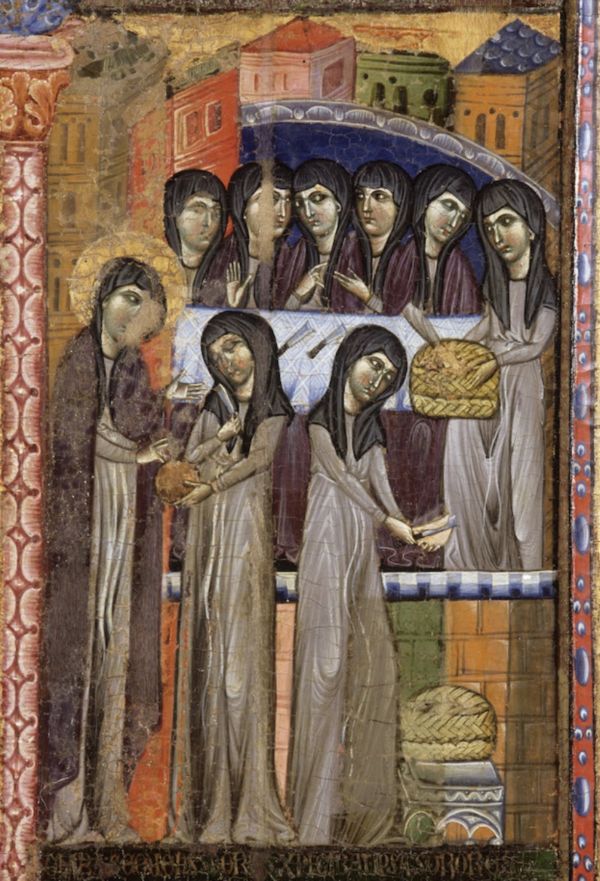Like Clare, the Poor Man of Assisi always had a special solicitude and veneration for the Eucharist.
The mere thought of the Lord's Supper, of how and how much Jesus had done for each soul, made him tremble in body and spirit.
He considered it fundamental, in order to live the Gospel fully, that he and his brothers make themselves a gift to their neighbour in every way and in every circumstance.
Francis understood perfectly well that everything is rhetoric if there is no effective giving of oneself to one's brothers, who need concrete witness to recognise Christ.
The Sources, a Franciscan treasure chest, attest to this truth he lived:
"Therefore, I beseech all of you brothers, kissing your feet and with all the love of which I am capable, that you lend, as far as you are able [...] all reverence and all honour to the Most Holy Body and Blood of our Lord Jesus Christ, in whom all things that are in heaven and on earth have been pacified and reconciled to Almighty God" (FF 217).
And again:
"We know that there can be no body unless it is first sanctified by the Word.
For nothing do we corporally possess and see in this world of the Most High Himself, except the body and blood, the names and words by which we were created and redeemed 'from death to life'" (Letter of Francis to all clerics; FF 207).
"He was burning with love in every fibre of his being for the sacrament of the Lord's Body, filled with awe beyond measure at such gracious deigning and most generous charity [...].
He offered the sacrifice of all his members, and, when he received the immolated Lamb, he immolated his spirit in that fire, which always burned on the altar of his heart" (FF 789).
Having, therefore, penetrated by grace into the Mystery, Francis had become a living Eucharist, an effective gift of the One who inhabited it.
But an example of "Bread given" comes to us no less from Clare of Assisi:
"There was only one bread, in the monastery, and already the hour of supper and hunger were pressing in. Calling the dispensary, the saint commanded her to divide the bread and send one part to the brothers, keeping the other inside, for the sisters.
From this second half kept, she ordered her to cut fifty slices, as was the number of the Women, and to present them to them at the table of poverty.
And to the devout daughter, who replied, "It would take the ancient miracles of Christ, to be able to cut so little bread into fifty slices," the Mother replied, saying:
"Do safely what I tell you daughter!".
So hastened the daughter to carry out the Mother's command; and hastened the Mother to address more sighs to her Christ, for her daughters.
And by divine grace that meagre matter grows in the hands of her who breaks it, so that an abundant portion results for each member of the community" (FF 3189).












